INTRODUCTION
LOPAR contains Loperamide which belongs to the group of medicines called Antidiarrheals. It is used to treat acute attacks of diarrhoea (in adults and children over 12 years of age) and acute episodes of diarrhoea associated with irritable bowel syndrome (group of symptoms that affects the digestive system such as abdominal cramps, gas, bloating and diarrhoea) (in adults aged 18 years and over).
Before taking LOPAR, inform your doctor if you have liver disease, acquired immunodeficiency syndrome (AIDS), low body fluids and salts (due to diarrhoea), intolerance to certain sugars and if you have a history of intolerance to certain sugars such as lactose.
LOPAR is not recommended for use in pregnant and breastfeeding women. It is not recommended for use in children (less than 12 years of age) and should be used with caution in children (above 12 years of age) for short-term diarrhoea.
LOPAR should be used with caution in elderly patients with severe diarrhoea (due to increased risk of low body fluids and salts), consult your doctor before taking this medicine. The most common side effects of taking LOPAR are headache, constipation, flatulence and nausea. Consult your doctor immediately if any of the side effects worsen.
USES OF LOPAR
To treat acute attacks of diarrhoea (in adults and children over 12 years of age)
Treat acute episodes of diarrhoea associated with irritable bowel syndrome (in adults aged 18 years and over)
HOW LOPAR WORKS
LOPAR acts by decreasing muscle contraction and fluid secretion, resulting in longer stomach and intestinal transit time and increased absorption of fluids and electrolytes from the gastrointestinal tract. Thus, helps to treat diarrhoea by slowing down the overactive bowel.
DIRECTIONS FOR USE
Take LOPAR as advised by your doctor. Swallow the medicine with a glass of water. Do not crush or chew the medicine. Your doctor will decide the correct dose and duration for you depending upon your age, body weight and disease condition.
SIDE EFFECTS OF LOPAR
COMMON
Constipation
Nausea
Flatulence
Headache
UNCOMMON
Dizziness, drowsiness
Stomach pain or discomfort
Dry mouth
Vomiting
Indigestion
Rash
RARE
Abnormal increase in muscle tension
Smaller pupils
Bloated tummy, tiredness
Severe itching
Skin rashes with the formation of wheals
Stop taking LOPAR and contact your doctor immediately if you experience any of the following side effects:
Bloated tummy which may be due to enlargement of the large intestine, which may cause constipation, bloating and tenderness of the stomach or fever (megacolon or toxic megacolon)
Allergic reaction which causes swelling of the face, throat or tongue, difficulty in breathing or dizziness
Severe skin, mouth, eyes and genital blisters (Steven-Johnson?s Syndrome or toxic epidermal necrolysis)
Fever, ill feeling, itching, joint pain, multiple skin lesions (erythema multiforme)
Swelling of the deeper skin layers caused by a building up of fluid (angioedema)
Decreased level of consciousness or loss of consciousness (passing out, feeling faint or less alert)
Difficulties in co-ordinating movement
Difficulties in passing urine
Severe constipation, blockage of the bowel
HOW TO MANAGE SIDE EFFECTS
Nausea or vomiting:
Stick to simple meals while taking this medicine. Avoid eating oily rich, fried or spicy foods. Do not lie down or sleep immediately after eating. Consult your doctor if the symptom does not improve.
Headache:
Drink ample amount of water and avoid skipping meals. Get adequate rest. Try to be relaxed and stress-free. Apply pain relieving balm on your forehead if necessary. Consult your doctor if the symptom does not improve.
Constipation:
Eat plenty of fiber-rich foods such as fresh fruits, vegetables and cereals and drink plenty of water. Exercise more regularly. If the symptom does not improve, consult your doctor.
Stomach pain:
Try to take rest and relax. Eat and drink slowly or try to have smaller and more frequent meals. Keep a heating pad on your stomach. If the symptom does not improve, consult your doctor.
Dry mouth:
Sip water regularly and other sugar-free liquids. Do not use mouthwashes that contain alcohol because they can make your mouth dry, use mouthwash that is used only for dry mouth. Limit your caffeine intake. Avoid smoking or using tobacco products. Consult your doctor if the symptom does not improve.
WARNING & PRECAUTIONS
PREGNANCY
LOPAR is not recommended for use in pregnant women. Consult with your doctor before taking LOPAR if you are pregnant or planning to have a baby.
BREASTFEEDING
LOPAR is not recommended for use in breastfeeding women as a small amount of this medicine may pass into the breast milk. Consult your doctor before taking LOPAR.
DRIVING AND USING MACHINES
Do not drive or use machines while taking LOPAR as it may cause dizziness, tiredness, drowsiness, reduced alertness, fainting or passing out. Consult your doctor before taking LOPAR.
LIVER
LOPAR should be used with caution in patients with liver disease. Consult your doctor before taking LOPAR.
ALLERGY
Do not take LOPAR if you are allergic to loperamide or any other ingredients of this medicine.
OTHERS
LOPAR is not recommended for use if you have:
Flare-up of ulcerative colitis (inflammatory bowel disease) which leads to abdominal pain, bloody diarrhoea, fever and weight loss
Severe diarrhoea after taking antibiotics (accompanied by watery or bloody diarrhoea)
Constipation, bowel blockage or stomach bloating
Bacterial infection of the small intestine and colon (caused by bacteria such as salmonella, shigella and campylobacter)
Inflammation of the colon after taking antibiotics (associated with watery or bloody diarrhoea)
Acute (short-lived) dysentery, the symptoms include blood in your stools and high temperature
Before taking LOPAR, inform your doctor if you have:
Acquired immunodeficiency syndrome (AIDS)
Low body fluids and salts (due to diarrhoea)
Intolerance to certain sugars
History of drug abuse
Loss of appetite or weight loss
Difficulty or pain in passing urine
Fever or recently passed blood from the bowel
Use in pediatrics:
LOPAR is not recommended for use in children (less than 12 years of age). It is used with caution in children (above 12 years of age) for short-term diarrhoea. Consult the child?s doctor for advice.
Use in Geriatrics:
LOPAR should be used with caution in elderly patients with severe diarrhoea (due to increased risk of low body fluids and salts). Consult your doctor before taking LOPAR.
INTERACTIONS
A. Drug-drug interactions:
Before taking LOPAR, inform your doctor if you are taking any of the following medicines:
Gemfibrozil (used to treat high cholesterol levels)
Quinidine (used to treat abnormal heart rhythm)
Ritonavir (used to treat HIV infection)
Itraconazole, ketoconazole (used to treat fungal infections)
Oral desmopressin (used in the treatment of diabetes insipidus)
Other antidiarrheal preparations such as bismuth subsalicylate (used to treat diarrhoea)
Overdosage:
If you or anyone else accidentally take too much of LOPAR, consult your doctor immediately or visit the nearby hospital. Symptoms of overdose includes, increased heart rate, irregular heartbeat, muscle stiffness, uncoordinated movements, drowsiness, difficulty urinating or weak breathing.
SYNOPSIS
Drug :?? Loperamide
Pharmacological Category :?? Antidiarrheals
Therapeutic Indication :?? Diarrhoea
Dosage Forms :?? Tablet, Capsule
MORE INFORMATION
Keep LOPAR out of reach of children
Store LOPAR at room temperature
FAQs ABOUT LOPAR
What is LOPAR used for?
LOPAR is used to treat acute attacks of diarrhoea (in adults and children over 12 years of age) and acute episodes of diarrhoea associated with irritable bowel syndrome (group of symptoms that affects the digestive system such as abdominal cramps, gas, bloating, diarrhoea) (in adults aged 18 years and over).
What are the common side effects of LOPAR?
The most common side effects of taking LOPAR are headache, constipation, flatulence and nausea. Consult your doctor immediately if any of the side effects worsen.
Can LOPAR be used in breastfeeding women?
LOPAR is not recommended for use in breastfeeding women as a small amount of this medicine may pass into the breast milk. Consult your doctor before taking LOPAR.
Can I drive or operate machines after taking LOPAR?
Do not drive or use machines while taking LOPAR as it may cause dizziness, tiredness, drowsiness, reduced alertness, fainting or passing out. Consult your doctor for advice before taking LOPAR.
Is LOPAR safe to use in elderly patients?
LOPAR should be used with caution in elderly patients with severe diarrhoea (due to increased risk of low body fluids and salts). Consult your doctor before taking LOPAR.
REFERENCES
1. K.D. Tripathi. Loperamide. Drugs for constipation and diarrhoea. Essentials of medical pharmacology. Seventh edition. 2013. Page-664.
2. Baker DE. Loperamide: a pharmacological review. NIH National Library of Medicine; National centre for biotechnology information. Pubdmed.gov. 2007 [Accessed on 16th September 2022] https://pubmed.ncbi.nlm.nih.gov/18192961/
3. Sahi N, Nguyen R, Santos C. Loperamide. NIH National Library of Medicine; National centre for biotechnology information. [Revised in May 2022] [Accessed on 16th September 2022] https://www.ncbi.nlm.nih.gov/books/NBK557885/
4. Tillomed Laboratories Ltd. Electronic Medicines Compendium (EMC). [Revised in January 2022] [Accessed on 16th September 2022] https://www.medicines.org.uk/emc/files/pil.11853.pdf
5. Cipla (EU) Limited. Electronic Medicines Compendium (EMC). [Revised in August 2020] [Accessed 16th September 2022] https://www.medicines.org.uk/emc/product/10287/smpc#gref
USEFUL DIAGNOSTIC TESTS
Stool culture
Complete blood count
PRODUCT DETAILS
Net Qty
1 N
Item Weight
17.5 g
Ingredient
LOPERAMIDE 2 mg
Hsn Code
30049039
Show more
Only logged in customers who have purchased this product may leave a review.
Reviews
There are no reviews yet.


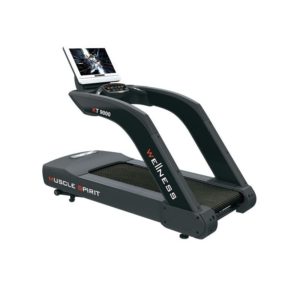
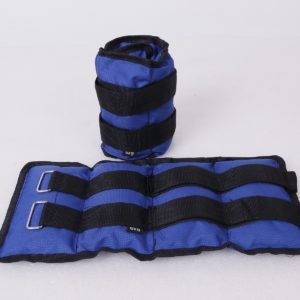
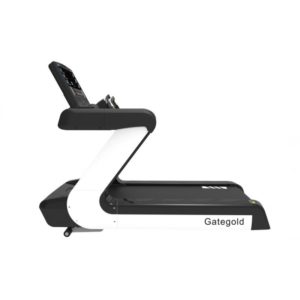
![PM160-4KG MEDICINE BALL + HANDLE [4KG]](https://allschoolabs.com/wp-content/uploads/2023/10/pm160-4kg-medicine-ball-handle-4kg-300x300-1.jpg)

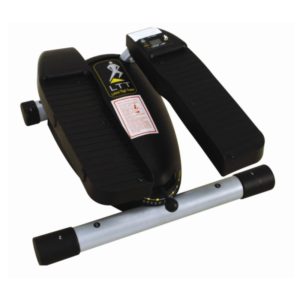





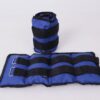


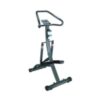
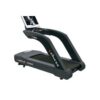

![PM160-8KG MEDICINE BALL WITH HANDLE [8KG]](https://allschoolabs.com/wp-content/uploads/2023/10/pm160-8kg-medicine-ball-with-handle-8kg-300x300-1-100x100.jpg)


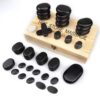

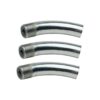
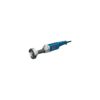

Reviews
There are no reviews yet.